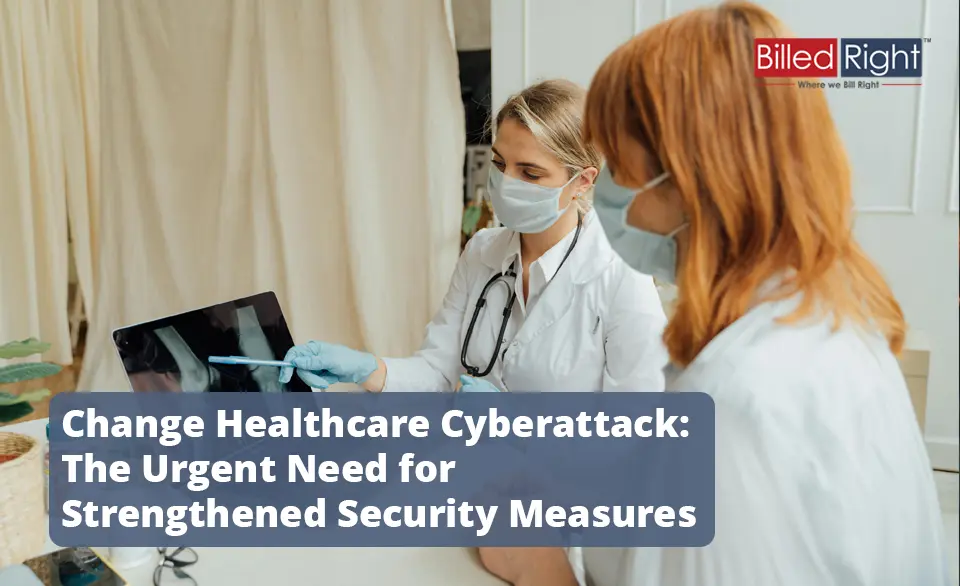Recently, a wave of cyberattacks has swept the healthcare sector, leaving a trail of disruption and uncertainty. At the heart of this crisis lies a targeted assault on Change Healthcare, a pivotal player in the U.S. healthcare technology landscape. The repercussions of this attack have reverberated nationwide, affecting patients, providers, and pharmacies alike.
As detailed in various news reports, the cyber siege on Change Healthcare’s electronic prescription portal has unleashed a cascade of challenges for individuals seeking essential medications. Patients across the country have found themselves grappling with the sudden unavailability of prescribed drugs, with elderly populations bearing a disproportionate burden. The inability of healthcare providers to fill prescriptions has compounded the dilemma.
Pharmacies, on the frontline of healthcare delivery, have encountered their own set of hurdles amidst the chaos. Delays and denials in prescription processing have become commonplace, leaving pharmacists and patients grappling with mounting out-of-pocket costs. This already unstable situation has been made more complicated by the complexities involved in processing insurance information. Below is a news report from WFLA outlining how badly this cyberattack’s effects have trickled down to patients within the Change Healthcare system.
As the fallout from the cyber onslaught continues to unfold, it is clear that the healthcare sector is facing an existential threat. The vulnerability of critical infrastructure, such as electronic prescription portals, underscores the urgent need for fortified cybersecurity measures. While Change Healthcare and its parent company, UnitedHealth Group, work tirelessly to restore normalcy, the broader implications of this attack cannot be ignored.
The U.S. Department of Health and Human Services (HHS) has stepped into the fray, recognizing the gravity of the situation and mobilizing resources to mitigate disruptions. The Centers for Medicare & Medicaid Services (CMS) have offered crucial assistance to providers, advocating for flexibility in claims processing and payment mechanisms to ensure uninterrupted patient care.
But with the threat of cyberattacks everywhere, it is clear that a thorough, well-coordinated response is necessary. The healthcare ecosystem must rally together to fortify its defenses, bolstering cybersecurity protocols and resilience measures to safeguard patient data and preserve the integrity of care delivery.
In the face of adversity, there is an opportunity for transformation. The challenges posed by cyberattacks serve as a clarion call for innovation and collaboration. By embracing a proactive stance towards cybersecurity, the healthcare sector can emerge stronger, more resilient, and better equipped to navigate digital threats.
Now that we’ve explored the implications of cybersecurity threats in healthcare, let’s delve into some practical tips to help doctors and medical staff better equip themselves and navigate the evolving landscape of digital security.
- Stay Informed: Stay updated on the most recent cybersecurity risks and developments that affect the healthcare industry. Subscribe to reputable cybersecurity newsletters, attend webinars, and participate in training sessions to stay informed about emerging risks and best practices.
- Understand Your Role: Recognize that cybersecurity is everyone’s responsibility within a healthcare organization, regardless of job title or specialty. Understand how your actions can impact cybersecurity, whether following secure password protocols, identifying phishing attempts, or safeguarding patient information.
- Implement Strong Password Practices: Use complex passwords or passphrases unique to each account and regularly update them. Consider using a password manager to store and manage passwords across multiple accounts securely.
- Be Vigilant Against Phishing: Be wary of unsolicited emails, text messages, or phone calls that request sensitive information or prompt you to click on suspicious links. Verify the legitimacy of communication by contacting the sender through a known, trusted channel before taking action.
- Secure Devices and Networks: Ensure that all devices, including computers, smartphones, and tablets, are equipped with up-to-date antivirus software and security patches. Use secure Wi-Fi networks and encrypt sensitive data to protect it from unauthorized access.
- Practice Secure Communication: Use encrypted communication channels, such as secure messaging platforms or encrypted email services, when transmitting sensitive patient information or discussing confidential matters with colleagues.
- Adhere to Privacy Regulations: Familiarize yourself with healthcare privacy regulations, such as the Health Insurance Portability and Accountability Act (HIPAA), and ensure compliance with patient data protection requirements. Safeguard patient information by limiting access to authorized personnel only.
- Participate in Cybersecurity Training: Take advantage of cybersecurity training programs offered by your healthcare organization or professional associations. These sessions can provide valuable insights into cybersecurity best practices and empower you to recognize and respond to security threats effectively.
- Report Security Incidents Promptly: If you encounter a cybersecurity incident or suspect a breach, report it to your organization’s IT department or security team immediately. Prompt reporting can help mitigate the impact of the incident and prevent further harm.
- Promote a Culture of Cybersecurity Awareness: Share cybersecurity tips and best practices with your colleagues and encourage a culture of vigilance and accountability when it comes to protecting patient data and maintaining cybersecurity hygiene


 Insurance Eligibility
Insurance Eligibility Charge Posting
Charge Posting Documentation Review
Documentation Review Claim Submission
Claim Submission Denial Management
Denial Management Payment Posting
Payment Posting Accounts Receivables Follow-up
Accounts Receivables Follow-up Patient Collections
Patient Collections Reporting
Reporting Account Management
Account Management